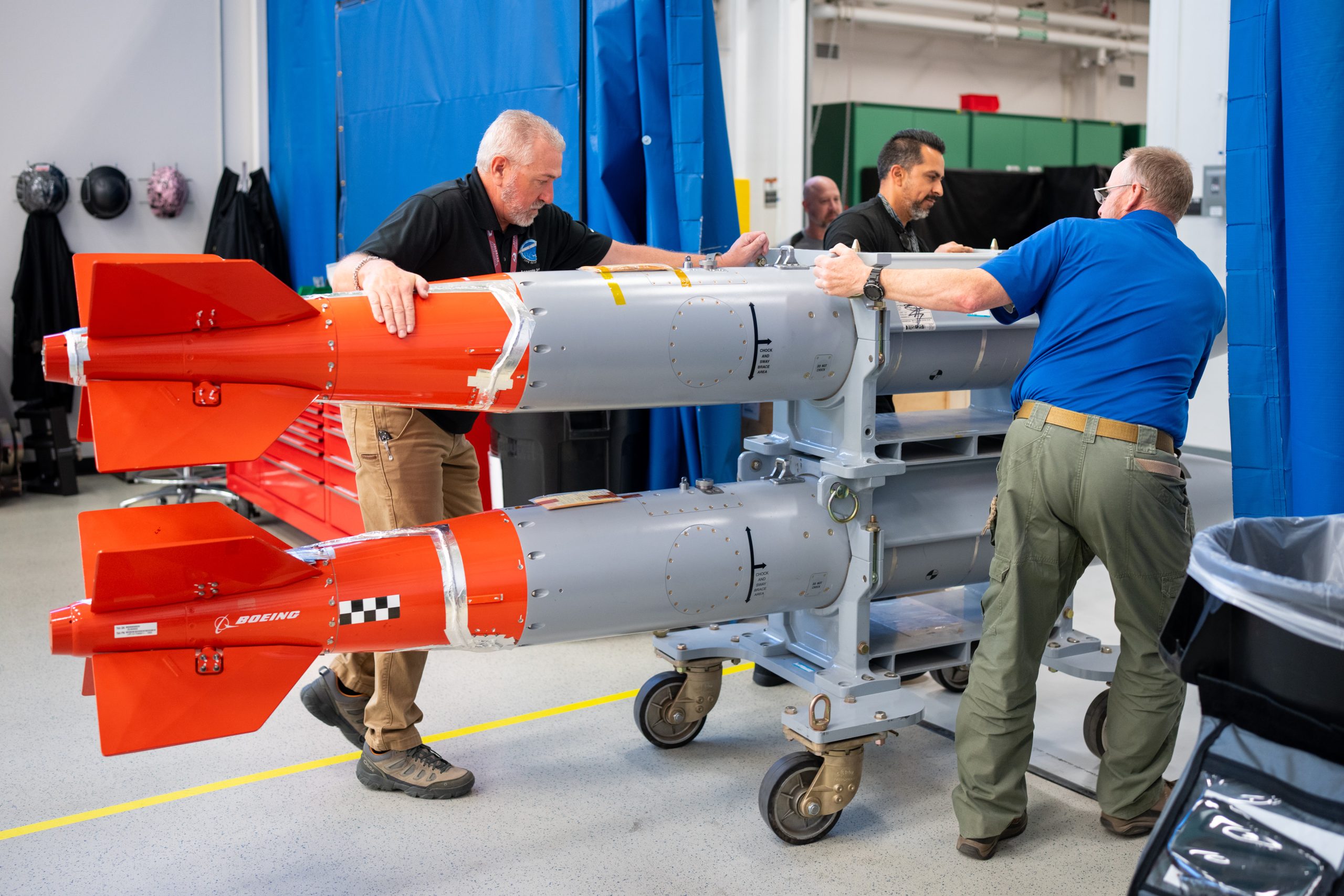The recent deployment of US thermonuclear bombs on British soil confirms, once again, the strength of the military alliance between Washington and London, disproving any theory that the United States would be willing to condition its relationship with the United Kingdom on secondary agreements with third countries. In this case, with Argentina.
According to intelligence and defense reports, at least twelve B61-12 thermonuclear bombs were moved from Kirtland Air Force Base, New Mexico, to the British Royal Air Force base at Lakenheath. This represents the first such storage in Europe in more than fifteen years, a move that strengthens NATO's deterrent posture against Russia. But it also sends an unequivocal political message: the Anglo-American military partnership remains an indispensable pillar of Western security.
 Image of Kirtland Air Force Base, New Mexico - September 2024 - receiving an AC-130J Ghostrider.
Image of Kirtland Air Force Base, New Mexico - September 2024 - receiving an AC-130J Ghostrider.
In this context, the theories of Argentine President Javier Milei, who assumes that the cession of strategic areas to the US— such as its participation in the Integrated Naval Base for Antarctic Development in Ushuaia —could pave the way for negotiations on the Malvina Islands, are exposed, at best, as a miscalculation lacking in geopolitical realism.
Washington's decision to strengthen its nuclear presence on British soil, in complete harmony with London, demonstrates that no peripheral agreement with Argentina will alter the US's historic support for the UK's position on the archipelago .
International relations experts agree that the Argentine government's strategy is based on a flawed premise. "The United States is not going to compromise its alliance with the United Kingdom, a key partner in NATO and its global strategy, for minor concessions to a country that has no weight in the Western security arena," said one analyst.
The very nature of the transfer of nuclear weapons, a decision of the highest strategic level, underscores that the shared interests between Washington and London far outweigh any gestures toward third parties.

B61-12 thermonuclear bombs, similar to those the US has just delivered to RAF Lakenheath.
The Milei government insists that an over-the-top rapprochement with the US, even with military concessions, could generate favorable pressure for Argentina's sovereignty claim. However, this latest move clearly demonstrates the opposite: nuclear cooperation between the two powers not only remains intact, but is actually strengthening at a time of global tensions. In this context, the Malvinas Islands remain a bilateral issue between Argentina and the United Kingdom, with no diplomatic shortcuts possible through external alignments.
While Argentina persists in a strategy based on unfounded expectations, the message of the facts is clear: the Washington-London alliance has no cracks, and any attempt to use the U.S. as leverage to force negotiations on the islands is, at best, a political illusion.


